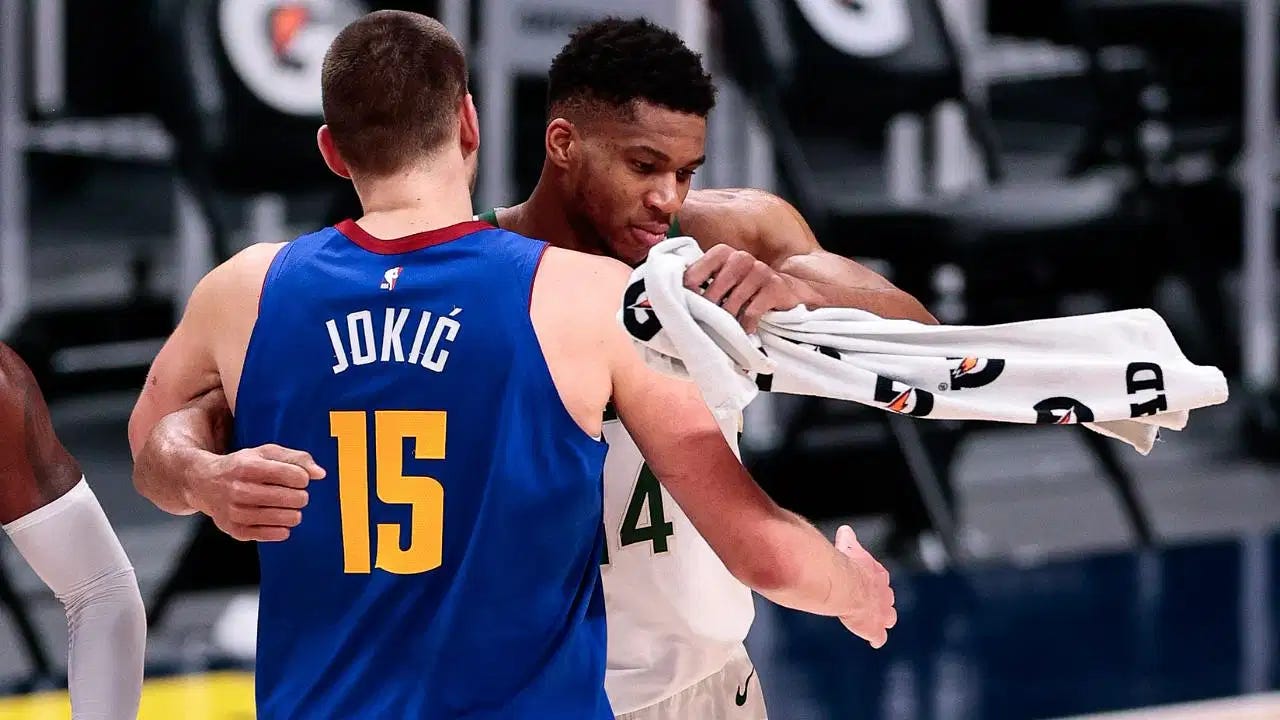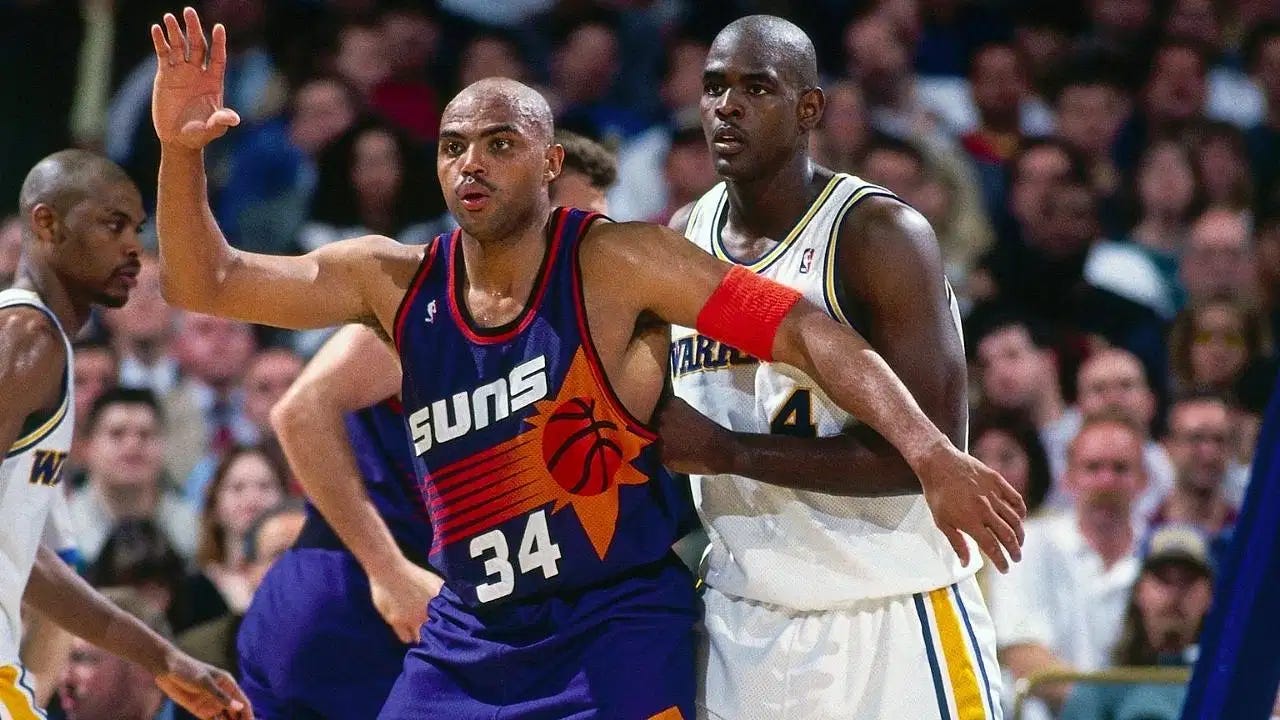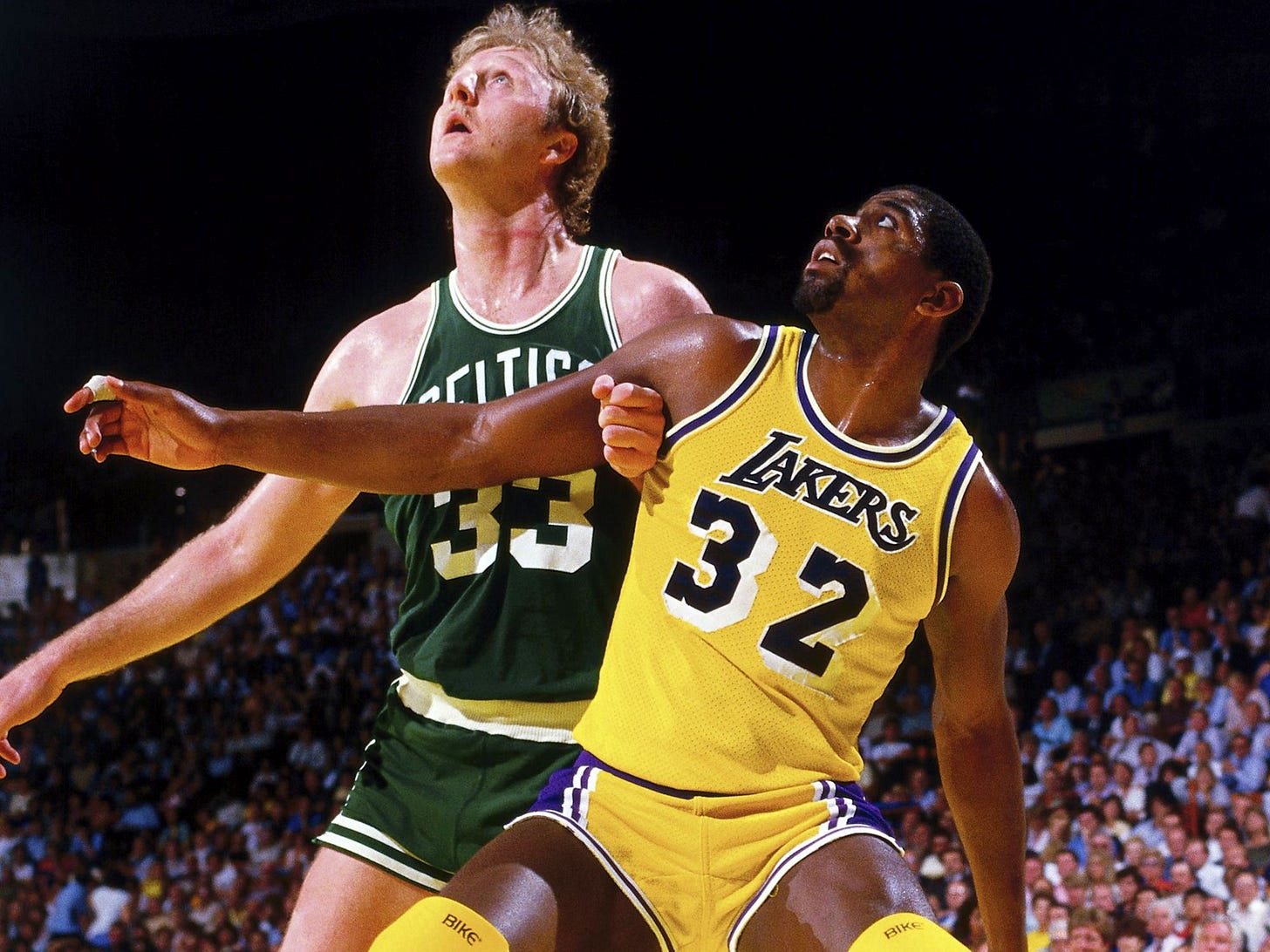We've Seen This Before
He won his first MVP award in dominant, efficient fashion. The next season, he put up one of the greatest all-around statistical seasons in NBA history en route to his second MVP. Plagued by voter fatigue, he came up just short in the MVP race the next year, the big man from Eastern Europe showed voters why they got it wrong, winning his first career championship, receiving the NBA Finals trophy, and elevating himself into the all-time great conversation.
Nikola Jokic’s rise to superstardom has been extraordinary, and extraordinarily fast. However, everything I just wrote was not about Nikola Jokic. I was describing the remarkable three year run of Giannis Antetokounmpo.
After Giannis Antetokounmpo came up short in game 7 agains the Boston Celtics in 2018, he knew that he his Bucks were just getting started.
“We gotta learn from it. Come next year, get better as a team, and come do it again. That’s it.”
That was an understatement. The next year (Giannis’ 6th season), he exploded, and after finishing 6th in MVP voting the season prior, he won the award by a wide margin, receiving 78 of the 101 first place votes. The Bucks reached the conference finals, but were upset by the Raptors. The next year, Giannis improved his points, rebounds, and PER, and won his second straight MVP trophy. By this season, there were increased expectations for the Bucks, but after tormented them in the NBA bubble, they wilted out of the second round to the Miami Heat, who would reach the NBA Finals. The following year, the Bucks had learned from their mistakes. In dramatic fashion, Giannis Antetokounmpo tied Bob Pettit’s record for most points in an NBA Finals closeout game, as his 50-point masterpiece eliminated the Suns, and lifted Milwaukee to their first title in 50 years.
In Nikola Jokic’s 6th season, he also took a huge leap. Like Antetokounmpo, Jokic went from a solid all-star to MVP, averaging 26.4, 10.8, and 8.3 on 58.3% shooting. However, he bowed out in the second round to a scorching hot Suns team. The next season, like Antetokounmpo, his PTS, REB, and PER increased. He joined Giannis as the latest player to win the award back-to-back times, putting up one of the greatest seasons in NBA history, and with his second best player being 25 games of Aaron Gordon, Jokic somehow willed the Nuggets to the playoffs, before losing to Golden State.
Something interesting: In 2019, Giannis lost to the eventual champions, Toronto Raptors, in the conference finals. In 2020, he lost to the Heat, the eventual finalists in the conference semifinals. As for Jokic, in 2020, he lost to the Lakers in the conference finals. They would go on to win the championship that season. Then, like the Bucks in 2020, Jokic and the Nuggets lost in the conference semis in 2021, the Suns, who (you guessed it) lost in the Finals that year.
Jokic came up short in the MVP race in 2023, as Antetokounmpo did in 2021, but after three straight years of dominance, he solved the puzzle and went on one of the greatest championship runs in recent memory, losing just four games en route to a ring.
Don’t get me wrong, these parallels are impressive and pretty rare, but the similarities between these two generational players do not end here.
Both players were first-time all-stars in their 4th seasons. In those seasons, Giannis’ PER and VORP were 26.1 and 6.7, respectively. Jokic’s were 26.3 and 7.0. Virtually identical.
They have the highest two PER’s of any MVP seasons in history. Jokic with 32.85 and Giannis with 31.86.
I used Jxmy Highroller’s Season Score Video for this one. I’ve talked about him before in a previous article. Jimmy is brilliant. Anyways, to the point. In 2021, Giannis’ season score was 114.0, and Jokic’s was 113.0. In 2022, Giannis posted a season score of 120.9, and Jokic had a 120.3 score. Not only are these figures practically the same, they are historic. Giannis’ and Jokic’s season scores in 2021 are 44th and 46th all-time, and the ones from 2022 are 20th and 21st. If there’s one thing I have learned besides the striking similarities of these two players, is that Antetokounmpo and Jokic are not only the two best players in the league today (Joel Embiid is a close third), but will go down as two of the greatest to ever touch the hardwood.
Both players usage percentages increased from their 5th season to their 1st MVP season, and took a major leap from then to their 2nd MVP year. However, when The Freak and The Joker won their rings, their USG% decreased by 5.0 and 4.7 each. It’s truly a testament to the “it takes a team” motto, and leads me to my next point.
When the Bucks won the 2021 Finals, Giannis Antetokounmpo became just the 4th player in the last 16 seasons to lead his team to championship without a member of the supporting cast that was an all-star that season. In 2023, Jokic became the 5th player in 18 years to do so. Think about it. 5 players. That’s no coincidence.
Finally, let’s look at the grand scheme of Giannis’ and Jokic’s legacies. In the center conversation, Kareem Abdul-Jabbar, Bill Russell, Wilt Chamberlain, and Shaquille O’Neal headline tier 1. Jokic is looming in the second tier along with Hakeem Olajuwon, Moses Malone, and David Robinson. As for Giannis, he’s also in the second tier of power forwards with Karl Malone, Kevin Garnett, and Dirk Nowitzki. One man populates tier 1, and that’s Tim Duncan.
It’s frankly uncanny how alike these two players’ careers are, given little we talk about it. It makes you wonder, do Giannis’ last two years of early-round exits mean that Jokic is in trouble of losing his crown as the best player in the NBA? Will we continue to see historic PER’s from them? I think so. But you already knew about Giannis and Jokic. They’ve been at the forefront of the league for the last half decade. But did you know about the vivid resemblance between two broadcasters careers?
Charles Barkley and Chris Webber were born in Leeds, AL and Detroit, MI, respectively. Both would go to schools in their own state, with Barkley going to Auburn and Webber attending Michigan. Their point totals in college were 1183 and 1218, making them two of the best players of the age at the time. Their overall stats were virtually the same as well. Webber averaged 17, 10, and 2 on 64% shooting. On Barkley’s side, he put up 14, 10, and 2 on 63% shooting.
Nine years removed, the former top-5 picks helped lead their teams to the playoffs in their rookie years with practically identical win shares. That was just the beginning. The next year, both players averaged 20 PPG, and the following year, both put up 23 PPG. Neither Webber or Barkley had much playoff success in their first eight years in the league, causing them both to switch teams. By season nine, Barkley was a Phoenix Sun, and Webber was on the Sacramento Kings. And in this 9th year of their respective careers, they would both have their best chance at a championship.
Barkley was enjoying his first year in Phoenix, reaching the Finals for the only time in his career. Unfortunately for the Suns, they ran into a buzzsaw—Michael Jordan and the Bulls were seeking a three-peat. He would torch Barkley—who averaged a very respectable 27.3 PPG—scoring 41 PPG including a 55-point game 4. Barkley would never have a better chance than this in his Hall-of-Fame career.
In Webber’s ninth season, the Kings reached the Western Conference Finals, and had a 3-2 lead on the Lakers who, like the Bulls when Barkley faced them, were looking to win their third championship in a row. Sacramento held a two point lead with three minutes remaining, but what happened next changed NBA history forever.
In the team’s most important game in 51 years, the referees seemingly stole game 6 from the Kings. LA would go on to win game 7 by six points.
Sure, Kobe Bryant averaged 29, and Shaquille O’Neal overwhelmed the Kings with 32 PPG in the series, but the 2002 Western Conference Finals will be remembered as the time that Chris Webber and the Kings were robbed of their best chance at a championship. 15 years after Barkley, Webber would be inducted into the Hall-of-Fame. And as there weren’t enough parallels between the two, they would both become broadcasters for TNT after they retired.
How about two moments that closely resembled each other? Well, I’ve done you one better. In fact, I’ve done you two better. Because within the span of a year, Kevin Durant did the exact same thing four times, leading me to believe that the NBA accidentally re-used their script.
Shots 1, 2, and 3 are in the same series. Shots 2, 3, and 4, are all turnaround, fadeaway threes from the top of the key. Shots 2 and 3 are in the same game, with the same margin, with the same toe on the line. Every single shot is against the Bucks, and every single shot resulted in a Brooklyn loss.
Can you imagine if just one of these shots was a made three-pointer? With the exception of the final Durant attempt, one of the shots being a three (the second shot went down as a two) might have led to a Brooklyn championship, and Durant might still be a Net.
A single shot bring replicated four times is pretty darn impressive, but an entire playoff run is extraordinary.
Apparently, when the Lakers watched the Boston Celtics, their biggest rival, win the NBA Finals 4-2 against the Houston Rockets, they were both angry and impressed because they copied and pasted Boston’s Finals win into the 1987 playoffs, when they went on to avenge the Celtics 4-2, just as the Celtics had beaten Houston in the season prior. But it wasn’t just the Finals that had the same result. Both championship teams won 3-0 in the first round, 4-1 in the second, and 4-0 in the conference finals.
The probability of back to back champions having the exact same playoff run is 0.005. Slim pickens.
To add to it all, both the Celtics and the Lakers had the best record in the league in their championship years, and each had the MVP (Larry Bird and Magic Johnson), and two all-stars (Robert Parish and Kevin McHale, and Kareem Abdul-Jabbar and James Worthy).
But what about times when the best team was taken out, and un underdog prevailed? Well, from 1975-1977, a 3-seed reached the NBA Finals three times in a row. There have only been 16 3-seeds out of 150 that have made the Finals, so the probability of such an event occurring is a mere 0.0012. Even better, in 1976 and 1977, three seeds (Portland and Washington) won it all. The probability of this is just 0.011.
One more for you: in both the 1960 and 1961 playoffs, the following events transpired. The Lakers beat the Pistons in the West semifinals, the St. Louis Hawks beat the Lakers in the Western Conference Finals, and the Celtics beat the Hawks in the Finals. To give some perspective into how rare this is, here are those same matchups from the last two postseasons.
Though some of the matchups, had the same teams, every 2023 matchup had a different winner than in 2022, revealing how rare those back-to-back postseasons over 60 years ago really were.
Thank you all for reading. Stay tuned for the next article, because it will blow your mind.








